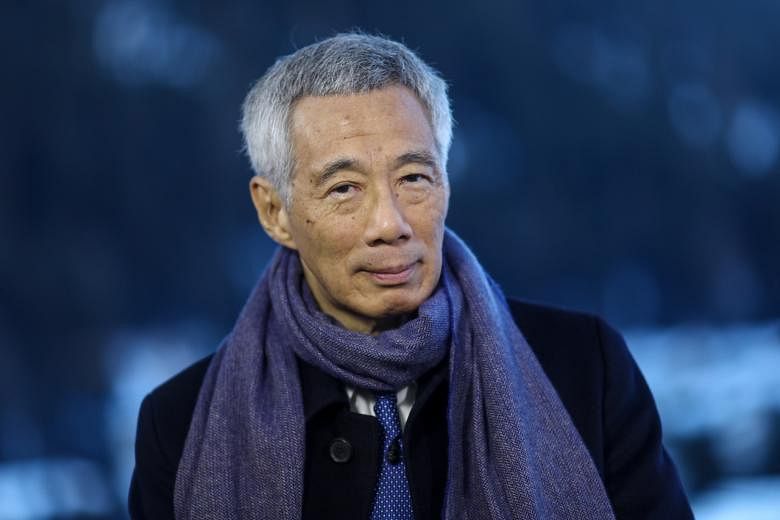SINGAPORE - Prime Minister Lee Hsien Loong has called on Singaporeans to remain calm, practise good hygiene and avoid spreading false rumours as the Wuhan virus situation continues to develop.
In a Facebook post on Tuesday (Jan 28), Mr Lee outlined the latest measures taken by Singapore to guard against the spread of the novel coronavirus, which emerged from the Chinese city of Wuhan last month.
Mr Lee said local transmission of the virus has not happened, but warned that it could and that Singaporeans have to be prepared for it.
To date, all seven confirmed cases in Singapore are Chinese nationals from Hubei province, where Wuhan is located.
The authorities have suspended entry into or transit through Singapore for people who have recently travelled to Hubei and those with Chinese passports issued in Hubei.
Singapore residents and those holding long-term visit passes who are returning here will be quarantined if they have recently visited Hubei , Mr Lee said.
He said: "We will continue to monitor the situation closely and do more if necessary. Meanwhile, we should all remain calm.
"All of us can do our part to limit transmission of germs by practising good hygiene. Wash your hands regularly, and seek medical advice early and wear a mask if you feel unwell."
Mr Lee added that, in general, there is no need to wear a mask if one is not ill.
He said he has received many messages expressing concerns about the novel coronavirus.
"I fully understand your feelings. We are all worried for ourselves and our loved ones, here and overseas," he said.
"The situation is developing rapidly. We have activated our contingency plans, and all our agencies are working together."
Singapore's hospitals and healthcare workers are well prepared, Mr Lee said, adding that Singapore has been preparing for "something like this" ever since the outbreak of Sars (severe acute respiratory syndrome) here in 2003.
Scientists and medical professionals across the world are working around the clock to understand the virus and develop a vaccine, Mr Lee said.
"Experts think the Wuhan virus may be less lethal than Sars, but more infectious. Patients who are infected may possibly be contagious before symptoms show. If true, this will make it harder to screen and detect new cases, and to stop the spread."
Mr Lee also urged the public not to listen to or spread rumours and untrue reports.
"Alas, there is a lot of that circulating around, on WhatsApp and social media. Sharing news responsibly is an important way we can protect ourselves."












